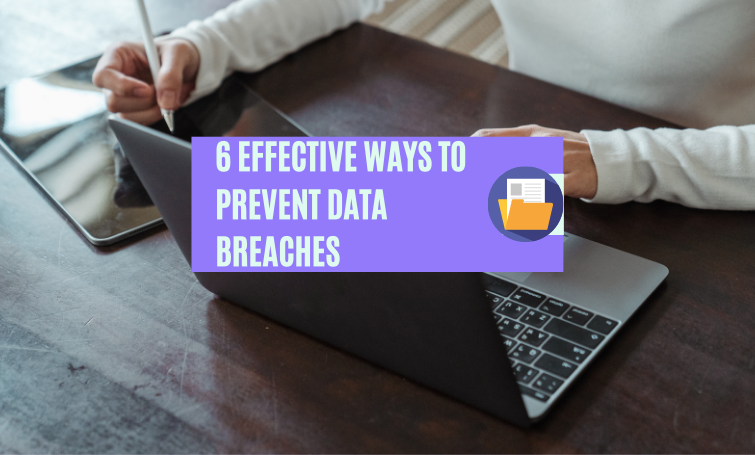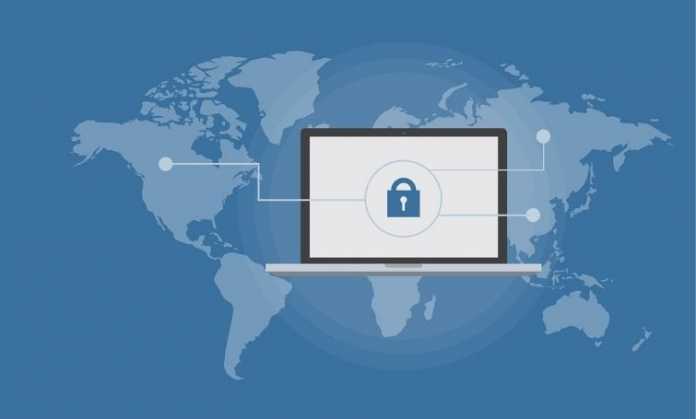Data breaches are increasingly common. Assuming your marketing agency is safe from them is a false viewpoint that could have disastrous consequences. Cybercriminals love wreaking havoc on all types of organizations. Since your marketing agency likely has lots of data on your clients or target audiences, attackers may consider it a prime target — particularly if they want to sell the stolen data on the black market for quick cash.
Luckily, you can take several effective steps to reduce your organization’s likelihood of experiencing a data breach. Here are six of them.

1. Keep All Operating Systems and Software Updated
Your marketing agency may have software that assists with managing leads, tracking campaigns, monitoring brand mentions, and posting to social media — among other things. Similarly, the organization’s computers have operating systems that require periodic updates.
Outdated software and operating systems can make it easier for hackers to steal data. That’s because software updates frequently contain patches that fix known vulnerabilities. If you cannot remember the last time all computers and software used by your organization got updated, it may be easier than you think for a hacker to exploit a flaw.
Consider methods of keeping software updated without disrupting the workflow. For example, you might set your software to update automatically, but only outside of business hours. If some workers bring personal devices to work, distribute information that positions software updates as easy and quick preventive measures to perform on those gadgets.
2. Have a Data Breach Risk Assessment Performed
A data breach could prove tremendously damaging for your reputation, making it difficult to keep current customers and attract new ones. A study found that 81% of customers would cease their online interactions with brands that sustained data breaches. It also indicated that 61% of respondents thought it was always a company’s responsibility to protect customer data.
However, it’s not easy to stop data breaches and safeguard people’s information if you don’t know where the weak points exist. Think about reserving a portion of your budget to hire a third-party company to determine your overall data breach risk and which aspects you should tackle first to reduce the threat.
A professional will know to evaluate elements that you may have overlooked or never considered. The assessment will also highlight what you’re already doing well. Getting that information could be a morale booster that helps you view data security as an ongoing journey.
3. Select the Right Firewall
You’ve probably heard people bring up firewalls while discussing cybersecurity. A firewall is the primary network security barrier for incoming and outgoing network traffic. Beyond that definition, there are several types. You can also get either hardware or software-based firewalls.
There is no universally “best” kind to use. It all depends on your needs and desired features. For example, hardware firewalls are dedicated network components, and they typically scan traffic patterns faster than software firewalls. However, hardware firewalls are usually the pricier option of the two categories.
Conversely, software firewalls offer excellent portability. They’re great for telecommuting workers due to how they keep functioning regardless of a device’s location. However, they can introduce more lag into a user’s experience due to taking up some of a gadget’s disk space and memory.
Take the time to get acquainted with other pros and cons while staying mindful of factors like your budget before choosing a firewall solution.
4. Change Passwords Often
Modern society’s dependence on digital interfaces and websites results in a growing number of passwords to remember.
Your work passwords may include details for an email account, project management system, team messaging app, and time-tracking tool, for example. Personal passwords might then give you access to your favorite e-commerce stores, online banking apps, your frequently used streaming services, government interfaces and local services.
Many of the passwords people use enable cloud-based interfaces. Those are especially handy for busy marketing agencies because they let individuals get work done anywhere. Your company should take precautions so passwords serve their intended purpose, however.
For example, require that people change their passwords every month or two. That way, if an unauthorized person gets a password, it may become irrelevant before they can try it. Similarly, remind people never to reuse passwords. Doing that could make them easier to guess or give cybercriminals access to numerous sites.
Also, clarify that workers should never share passwords with colleagues, even when doing so seems like the best way to get work done without delays.
5. Ensure That All External Parties Maintain Data Protection Standards
Your marketing agency probably shares its data with external parties, at least occasionally. For example, perhaps the company recently ran a campaign that required carrying out surveys. You may have deemed it most convenient to use an external company’s survey platform to do it, which meant storing consumer data on that entity’s servers. Alternatively, maybe your business depends on a cloud backup service.
In any case, think about the chain of parties that handle data related to your company and its customers. Emphasize that those entities must meet minimum data protection standards to start or continue a relationship with your organization. After all, if their blunders result in your data loss, you’ll inevitably attract negative media attention and possible reputational damage.
Instead of merely asking if external service providers keep data safe, and accepting their answer as fact, ask for details about what specific things they do to avoid data breaches. They may bring up how the company encrypts all information at rest and in transit, or restricts the number of team members who can access data, for example.
6. Include Material About Preventing Accidental Breaches When Training Employees
Malicious hackers come to mind when most people think of what causes data breaches. Cybercriminals bear responsibility for many of them, but the incidents can also occur due to employee mistakes.
A study about data breaches originating from outbound email found they’re surprisingly common. More specifically, organizations reported an average of at least 180 such incidents annually that put sensitive data at risk.
The research also identified three principal reasons for accidental data breaches. They often occurred when employees fell for spear-phishing emails that requested information, sent emails to the wrong recipients, or attached the incorrect files to their outgoing messages.
Educational content for your marketing agency’s team should emphasize how everyone has a vital role to play in stopping unintentional data breaches. Help workers learn the telltale signs of a phishing email and encourage them to take a few extra seconds to verify they’re sending the right material to the correct people.
Stress that workplace efficiency is important, but not at the cost of making errors due to rushing.
Fight Back Against Breaches Before They Happen
You may have previously thought data breaches were not likely to cause problems for your marketing agency. However, you now know that’s an inaccurate and risky stance to have.
Fortunately, these tips will help you switch to a more proactive approach so you can safeguard against breaches rather than living in dread. Data loss is not inevitable, and you can significantly reduce its likelihood by using these suggestions to start adopting a tighter cybersecurity strategy.

Eleanor Hecks is editor-in-chief at Designerly Magazine. Eleanor was the creative director and occasional blog writer at a prominent digital marketing agency before becoming her own boss in 2018. She lives in Philadelphia with her husband and dog, Bear.



























